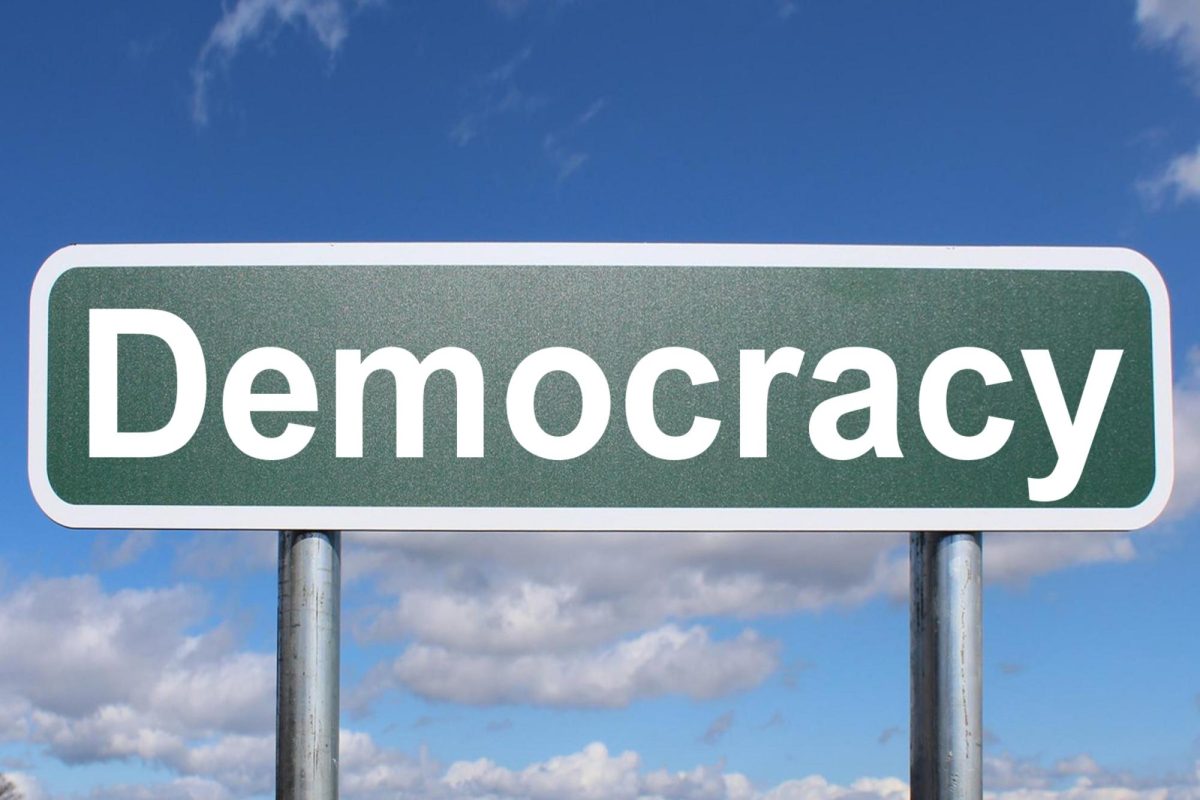Election Day is just around the corner. Beyond the grand stages, flashy lights and campaign rhetoric, real political discussions—especially among those who hold opposing views—often devolve into frustrating and disheartening exchanges.
Why is this? The simple answer is that we lack civic respect for one another.
Civic respect means recognizing and valuing the rights, opinions and contributions of everyone in society. It’s about treating others with dignity and fairness, no matter their background, beliefs or political views. This respect is essential for a healthy democracy: an environment where diverse perspectives are acknowledged, civil discourse is promoted and individuals work together for the common good, even amid disagreement.
Lynn Vavreck, a UCLA professor of American Politics and Public Policy, and her colleagues introduced the concept of “political calcification” to describe the current state of American politics. Vavreck explains that calcification is “polarization plus”— that parties are not only more divided but also more homogeneous. This homogeneity makes it even harder for parties to alter their positions because there’s little pressure for change or compromise when they almost always win.
Our growing division and stagnation are compounded by ego. A 2018 study found that two-thirds of Americans believe they possess above-average intelligence. In a world where everyone is encouraged to voice their version of the truth, objectivity is increasingly rare. Political debates have shifted from discussions grounded in facts to battlegrounds of beliefs and values. Whether debating the events of Jan. 6, the reality of climate change or issues around immigration, our conversations often stray from objective analysis to personal attacks.
A survey of Republicans and Democrats reveals that more than six in ten partisans find political discussions with those who disagree with them stressful. This reluctance to engage with opposing views reflects how deeply personal and closely held our beliefs have become. For example, when someone challenges our opinions on issues like the United States-Mexico border, it can feel like a personal attack. Yet, it’s entirely possible to disagree while remaining respectful.
Americans need to adopt a more objective perspective on political issues. Despite the polarization, a survey of 50 political issues—from government spending and law enforcement to the military and abortion—shows that a majority of Americans are actually in agreement on many points. The problem isn’t the people; it’s the politicians who are blowing this division out of proportion for their benefit.
Disagreement is a natural and crucial part of politics. However, avoiding uncomfortable conversations only perpetuates division. These discussions, though difficult, are vital for genuine civil discourse and a healthier democracy.
While politicians and parties may benefit from this division and calcification, average Americans often feel frustrated and disillusioned by the lack of progress. The path forward lies in fostering civic respect—treating one another with dignity, acknowledging diverse perspectives and striving for a more objective view of political issues. By recognizing the common ground we share, we can begin to break the cycle of polarization and rediscover the true power of democracy.



Yes, but... • Sep 16, 2024 at 1:54 pm
This is certainly true for many issues, but I don’t think this framework is effective in all situations because it ignores the power dynamics at play and the effects certain positions have on real people. If someone’s belief/value/opinion/whatever is “queer people shouldn’t exist/have the same rights as non-queer people with regards to healthcare, employment, relationships, etc.” and they have the capacity to enforce that view, I think it’s unreasonable to expect myself as a queer person to respect that or treat that view as equally valid as “I deserve existence and basic rights”. **Pleading for ‘civil discussion’ or ‘respect for opinion differences’ in situations where one side’s position would result in structural violence if acted upon only serves to legitimize that harmful position and paint those who disagree as equally extreme.**
Tate Farinacci • Sep 16, 2024 at 6:31 pm
Hi Erin, thank you so much for taking the time to comment! I understand your position and you raise some valid points. The Carroll News does not condone violence of any kind. If you feel strongly about this topic please consider writing a letter to the editor, you can find more information about this under our about page!
Jack K. • Sep 12, 2024 at 3:07 pm
I completely agree with what the author says. I hope that our generation will be the one to comprehensively restore, or at the very least shake up, the current state of American democracy. I know quite a few people who have lost faith in our democratic process altogether, since civic participation is decreasing so much and because our established private and public institutions will, right now, so gladly take the chance to cement their control over public life.
If you care about how what should be a “full and vibrant political democracy, with liberty and justice for all” has declined and is continuing to decline, I’d recommend that you read “Rich Media, Poor Democracy” by Robert W. McChesney. I don’t agree with all of his political views, but his analyses on how deregulated media markets don’t lead to a fuller democratic life and how the Internet helps and hinders civic life now, in particular, are spot on.